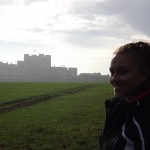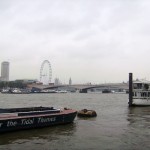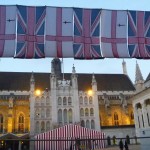27-10-11
Today we did youth work with a local group again, for the last time (it will happen next week, but Hannah and I will be gone). The primary exercise we did today was “not on my street”, an exercise where youth ranked the order of people that they would want/not want in their community. The members included ‘gay nurse’, orange order member, SF councilor, ex RUC constable, community worker, reformed drug addict, part time female model, bus driver, hospital doctor, and unemployed youth. The order of preference varied by group, but the discussion within the group I was in was fascinating. I was the scribe, but also asked probing questions about the rationale behind why youth answered the way they did, and got some very interesting answers. The group ranked gay nurse very low (9), and member of orange order last (every group consistently did so). The female model was ranked first, not unsurprisingly because our group was ¾ male, but the interesting thing was why. I asked if they would change their answer if the model was male, they affirmed this. The lone female in the group (F to preserve anonymity) was very charismatic (reminding me of a very ‘Swarthmore’ persona, Hannah convinced her to apply afterwards, and she gave out her contact info later in case she was interested in applying contacting her about applying there). She was consistently trying to dissuade the guys from their opinion, challenging their positions and rationale. She even decried the group as ‘sexist’ at one point, as well as homophobic (when asked about whether they focused on the ‘gay’ part of ‘gay nurse’ or the actual profession (nurse) they answered that they would focus on the gay part, ignoring the profession, regardless of the fact that [IMO] the sexual orientation of the person in question doesn’t affect how they do their job. I do understand legitimate ideological opinions about the morality of sexuality, but that shouldn’t affect perceptions of people doing their job…
It would be fascinating to run this (albeit with different characters and context) at Swarthmore. My bet would be that anyone remotely right-wing, rich, conservative, republican, etc. would be put at the bottom of the list. I think that it’s always worth thinking through our stereotypes and questioning them. Something may be true for one member of a group, but that doesn’t mean it’s true for all of them. I’ve learned that I have my biases even in the exercise, as the image that came to mind with ‘reformed drug addict’ was male, [though I did actually focus on the reformed part, not the drug addict part], even though the case study was female. I will certainly keep in mind that with future endeavors. It never hurts to be reminded of one’s own biases, even if it is uncomfortable. It’s a growing experience I suppose…
This was the last time I will be working with the youth, as the Corrymeela residential conflicts with the last training date. I found working with the youth to be a fantastic experience overall, I enjoyed it greatly, and learned a lot about myself. Namely, I have more in common with them than I thought, and that youth work (in the right context) is actually a constructive and positive experience, even in a completely foreign context. I realized that I really enjoy being a facilitator, and given the proper training, I will develop that skill in the future.
-Josh


